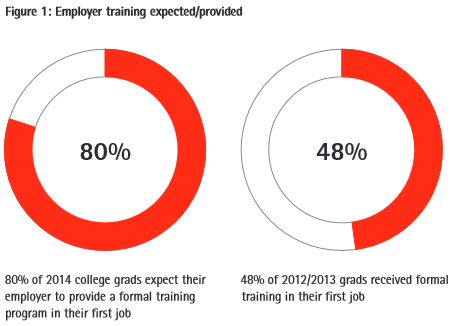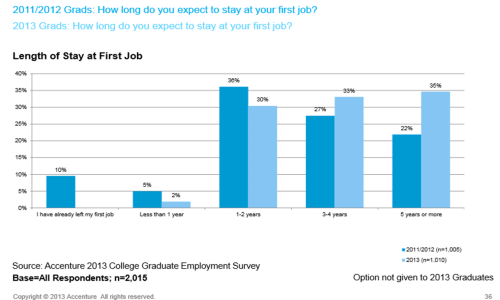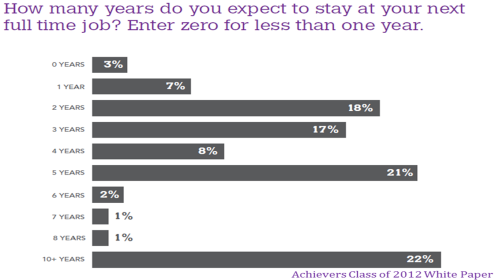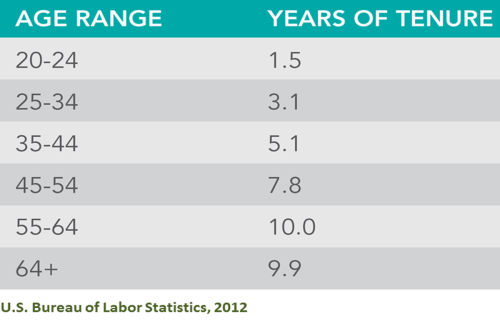
Accenture’s strategy group has published an interesting look at the workforce of the future: Harnessing Revolution, Creating the future workforce. At an easily consumable 28 pages, it focuses on three primary areas of emphasis for organizations wanting to get a competitive leg up in the hyper competitive talent markets:
- Accelerate reskilling people
- Redesign work to unlock human potential
- Strengthen the talent pipeline from its source
If you’re starting to discuss talent acquisition, development, and retention strategies with your C-Suite, you’re a little late – and this report will be helpful in scoping out the known and unknown challenges barreling down the pike.
The report is full of good news like data presented that show workers being optimistic about the impact that technology will bring to their work life: “…instead of resenting technology, 84 percent report being excited about the changes it will bring. A full 87 percent are downright optimistic, projecting that it will actually improve their work experience in the next five years.” So that’s some good news we’ve haven’t seen before.
As an advocate for humans and humanity in the workplace, I was especially pleased to see an emphasis in the report on the value that human skills bring to the enterprise: “our model shows fewer jobs will be lost to automation if people are able to reallocate their skills to tasks that require more ‘human skills’ such as complex analysis and social/emotional intelligence.” The following figure shows that perhaps the gross fears of automation and job eliminations may not be grounded in fact:
The challenge of job loss due to automation is clearly real. But as this report shares, reallocation of skills will significantly decrease job loss. Accenture’s research shows that investments in reskilling the workforce will “dramatically” reduce job loss: “Estimates for Europe show that a one percent increase in training days leads to a three percent increase in productivity, and that overall productivity growth attributable to training is around 16 percent.”
The section on focusing on reskilling people is short and sweet:
- Reskill at the top of the house
- Keep building on what you have
- Change the mindset to “learning as a way of life”
- Use digital to learn digital
While, paragraphs 2 – 4 are expected, paragraph 1 is not. Accenture’s research points to a lack of technology skill and experience in the boardroom. And from a leadership perspective, leading in horizontal rather than hierarchical ways will be foundational. Investing in additional skills at the top of the house could make or break your workforce planning outcomes.
There are lots of nuggets in this report. It’s a pretty quick read and the data sources include Accenture, of course, and the likes of the World Economic Forum, Manpower Group, ILO, OECD, Harvard Business Review, Pew Research Center, INSEAD and many others. Citing these sources is one of the reasons I really like the report. This isn’t the usual white paper.
If you’re really getting into the weeds of planning for your future workforce, this is a strong addition to your data sources. Not only is the report useful, but the list of source material could keep you going for weeks.













